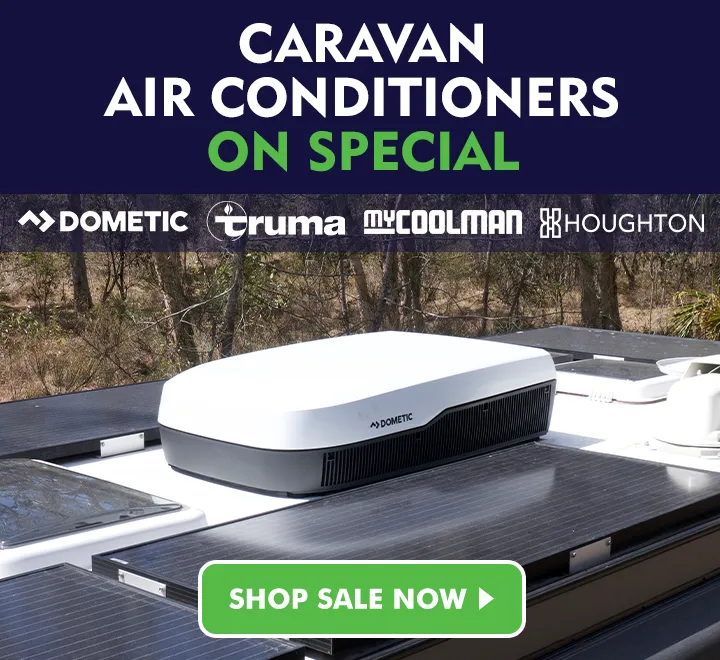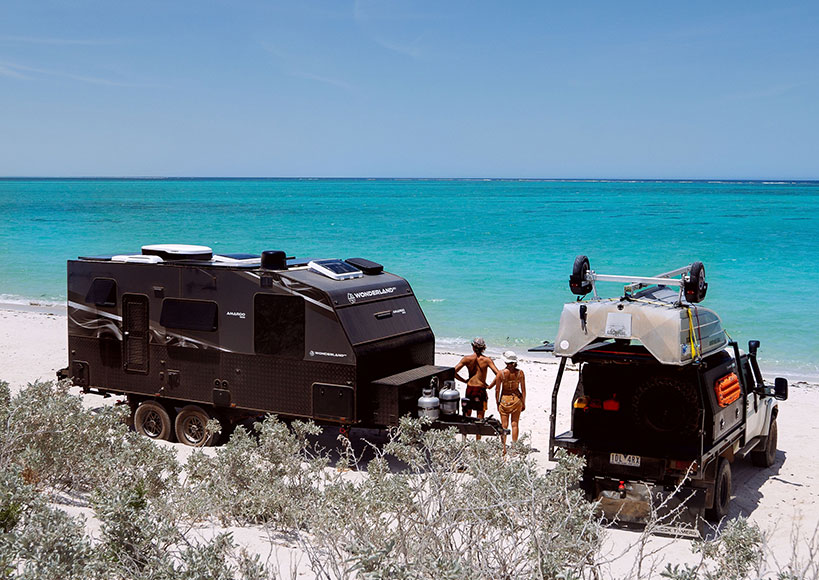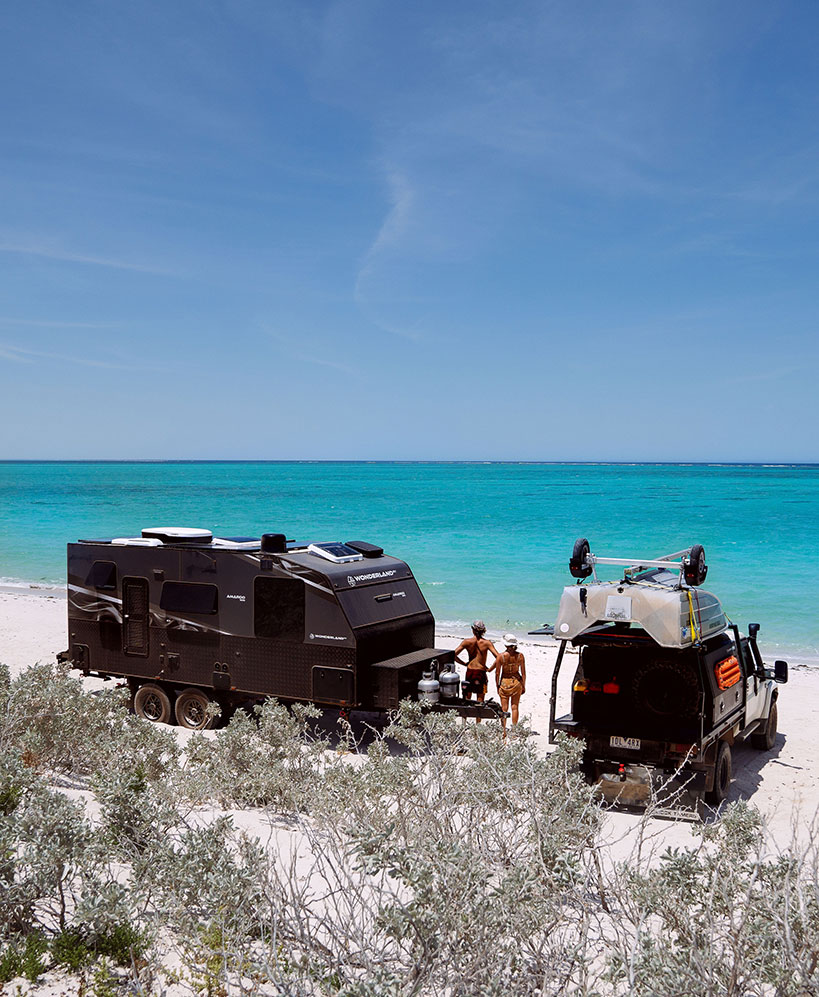When going camping out in the bush or anywhere else in your caravan, you need to be prepared. Solar panels have made this a lot easier since you can now enjoy the outdoors without leaving all the comforts of home, such as electricity and refrigeration behind. If you're new to off-grid setups, check out our caravan power systems guide for a full overview of how everything works together. Having power on the road has also allowed us ways to get in contact with the outside world should anything serious come up. However, like any tool you bring to the bush, you need to know how to use it properly so you can get the most out of it.
Before You Buy Solar Panels
For starters, you need to know how much power you plan on using before buying your system. This means taking into account the appliances you will be bringing such as refrigerators, light bulbs, and any communications devices (and chargers that go with them). You can use our solar panel calculator to estimate how much power each of your appliances will use.
You should also take into account how long you intend to be out in the wilderness. A person who goes camping for a weekend every once in awhile will not need as powerful of a system as someone who goes out in the bush for weeks or months at a time. By knowing what you will need, you can get the right system that will not be overextended by your appliances.
Solar Panel Installation
Next, you need to make sure they are properly installed. While you can set up some systems by yourself, things like rooftop solar systems may require a professional installer as the panels there have to contend with both the elements and the hazards of driving. Either way, properly setting up your system will ensure it works.
Use a Solar Regulator
Your system should also include a solar regulator to take care of your battery. This is vital to ensure battery health and performance over time. Plus, the battery can be expensive to replace. So it is best to maintain your battery by getting a regulator.
Keep Them Clean
You should also take care of your solar panels. If a solar panel gets dirty, it will generate less power as sunlight won't get through it very easily. Leaves and other debris also block sunlight. You should make sure that cleaning the panels is a regular part of your routine. Depending on where you are, it might get dirtier so you will need to keep a close eye on your panels. Keeping your panels clean will ensure they produce maximum energy. If you clean your panels regularly, it will not take much work. You will only need some soap and water. The panels can get very hot during the day so it is best to clean panels in the evening. It is worth noting that a panel system that is tilted will get some benefit from rainfall. A flat system mounted on your caravan's roof will need to be cleaned more frequently.
Maintaining Your Batteries
Cleaning your batteries is important not only to prolong battery life but also and make sure your system runs at optimum efficiency. You should be checking your batteries for signs of corrosion. If you do happen to find signs of corrosion then it's time to grab some cleaning supplies. You will need gloves, 1 cup of baking soda & 1 tablespoon distilled water mixed, an old toothbrush and a cloth. Make sure your batteries are always properly discharged from the electrical connection before beginning. You can then start using your baking soda and distilled water with your toothbrush to remove the corrosion. Once you are finished, you can rinse the terminals with the distilled water and dry off the areas with a cloth making sure the battery is completely dry.
You will also need to watch out for sulfation if you are using lead batteries. Sulfur crystals can form and cause issues with the connection to your regulator. The only verified way to prevent this is to charge the battery often. You should also make sure never to mix new and old batteries. This will end up destroying the new battery.
Positioning Your Caravan
In order to get the most out of your solar panels, you should make sure they are in a place with optimum sunlight. You should also position them in a place that gets the most sunlight during the afternoon. In the summer, they should be placed directly overhead. Lower them toward the Northern part of the sky during the rest of the year. You should tilt the panels at a 45 degree angle for best results. If one panel is in the shade or otherwise covered up, the electrical output of all the other panels is diminished. If the weather is stormy or there's a dust storm and you have portable panels, you should bring them inside. There is no point to having them out there since they cannot generate electricity. Plus, in some conditions, the weather can damage your portable panels.
Efficiency
You should also make sure to be as efficient as possible. This means not having lights or other appliances on when you are not using them. You should also use LED bulbs instead of old fashioned halogen ones. The halogen bulbs use more power than their LED counterparts.
Avoid Shaded Areas
Remember that solar panels are designed to function under direct sunlight. Even small shadows can decrease the amount of power your panels produce. This means you should avoid setting them up in places with lots of trees or places where other things cast shadows.
Allow Airflow
If possible, you should try to make sure there are gaps between each solar panel. The panels can get hot and if they get too hot, the amount of energy they produce decreases and wear and tear increases. Spacing them out increases airflow, meaning that your system will generate maximum energy.
Parts Maintenance
The final tip is to replace parts of your system as often as necessary or when the owner's manual dictates. Running a damaged system will decrease its efficiency, if it works at all.
By using these tips, you will be sure that you will have a well maintained and efficient solar power system that lasts longer.
DISCLAIMER* Please note, this advice is general in nature and we strongly recommend consulting the product manual and where relevant, a professional installer.
Comments (7)
Running 240v appliances on a 12 v system
I would like to know also how to wire up all these 240 volts appliances on a 12 volt systemBy: Sam Buttigieg on 09 January 2024
www.caravanrvcamping.com.au Response
Hi Sam, when it comes to 240v we always recommend you employ the advise of a certified electrician to ensure you are compliant and most of all safe.
Battery care
Is your advice in the article for lead or lithium or all batteries?By: Christine Milicich on 31 May 2023
www.caravanrvcamping.com.au Response
Hi Christine, this particular article focuses on the solar maintenance. These tips are relevant for both lithium and AGM systems.
Solar panel alignment
In the southern hemisphere I would tend to angle my panels towards the north during the winter not the south. Also if you are closer to the equator north of the tropic of capricorn there is going to be some seasons when south facing would be ok for example southern summer. DaveBy: Dave Rosie on 26 May 2023
www.caravanrvcamping.com.au Response
Hi Dave, yes you are correct
Sun direction
I thought that there is more sunlight in the north, in Australia and the southern hemisphere, not south.By: Karen P McBride on 26 May 2023
www.caravanrvcamping.com.au Response
Hi Karen, great pick up! Solar panels are best tilted to the North in the cooler seasons
Size of solar system
Is it possible to get a solar system that will enable appliances like microwaves, toasters, hair dryers etc to be used without connecting to 240v power?By: Matt Johnson on 25 May 2023
www.caravanrvcamping.com.au Response
Hi Matt, thanks for reaching out. We have emailed you for further information on helping you build the system you need to run your 240v appliances on your 12v system.
No soap
I have been told by a few solar people, Do Not Use Soap to clean the panels, use water or a glass cleaner but not soap, I guess it probably leaves a film over the panels that will also need to be removed. RobBy: Rob McGregor on 25 May 2023
www.caravanrvcamping.com.au Response
Hi Rob, on glass panels you can use anything you would normally use to clean glass, including soapy water. Just ensuring you are adequately rinsing any soap off after dirt is removed. For plastic panels only soapy water and a good rinse should be used.

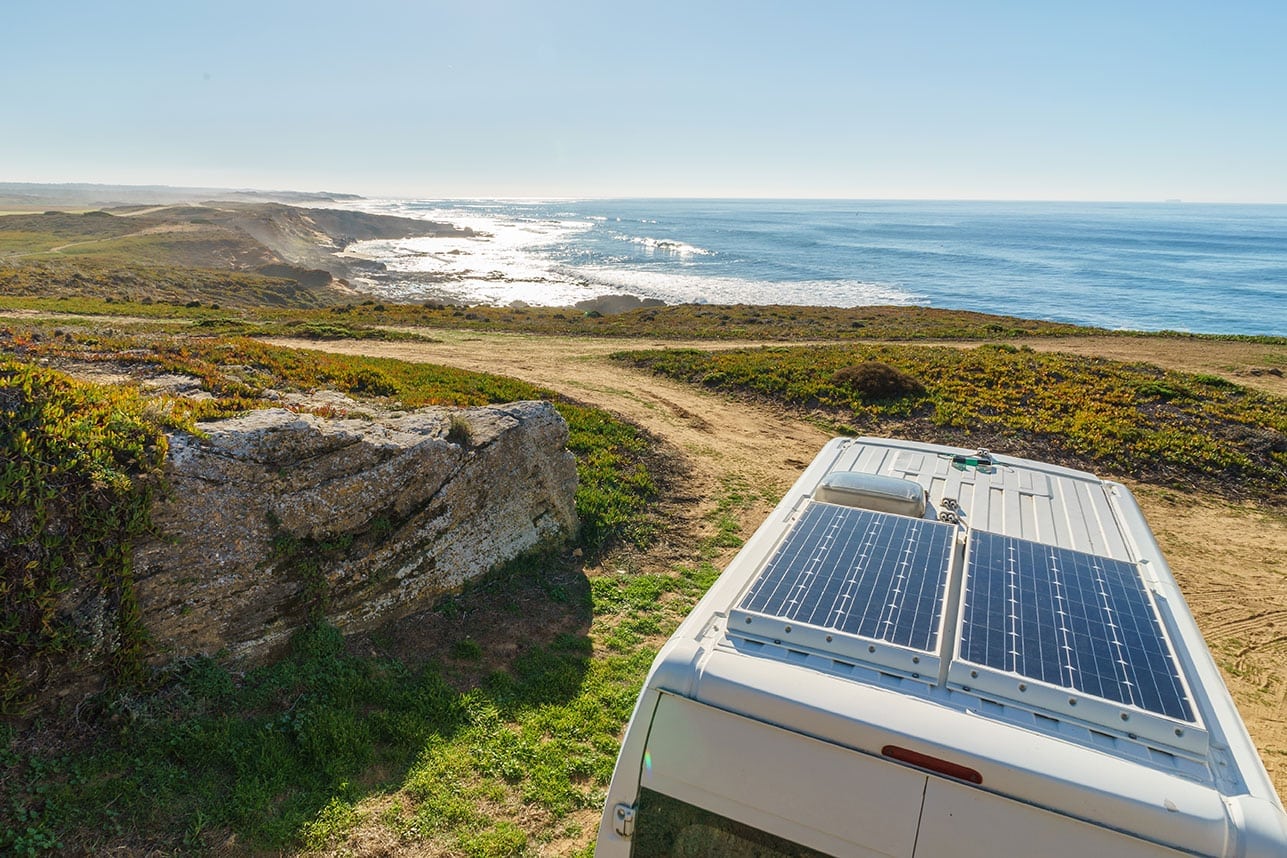
.jpg)
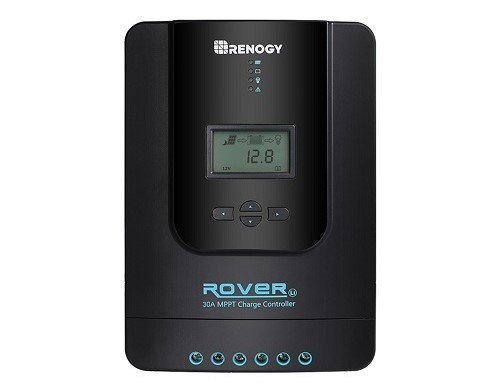
.jpg)

